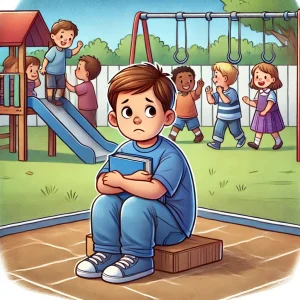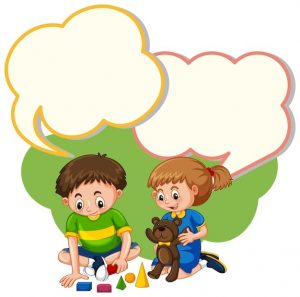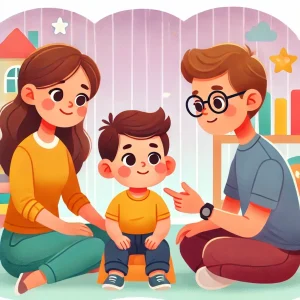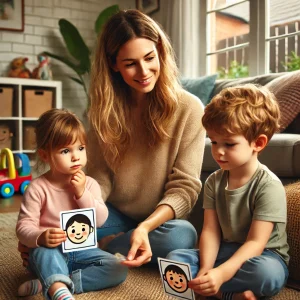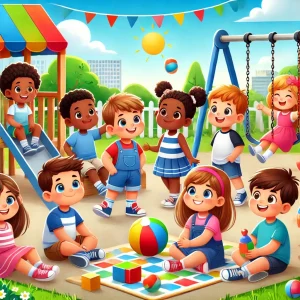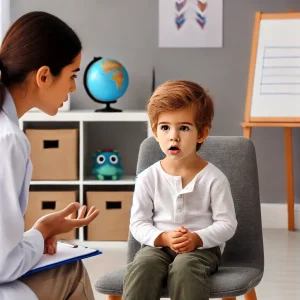Language Development Tips for Kids Aged 6-12
By Wellness Hub
Last Updated: December 13, 2024
As children grow from toddlers to school-goers, their worlds and social environments expand, making effective communication skills essential. Language development tips can help children enhance these skills, enabling them to connect with others, express their needs, and understand their surroundings. In academia, clear communication fosters learning, problem-solving, and relationship-building with peers and teachers. Similarly, in social settings, adept communication is crucial for forming friendships, resolving conflicts, and navigating school and extracurricular activities.
Understanding Language Growth in Children Aged 6 to 12
Key Stages of Language Development
As children enter the school years, their ability to communicate undergoes significant transformations. Between the ages of 6 and 12, children not only refine the skills they already possess but also acquire new linguistic abilities that help them interact more effectively with the world around them. Let’s explore some of the key language development milestones you can expect during these formative years:
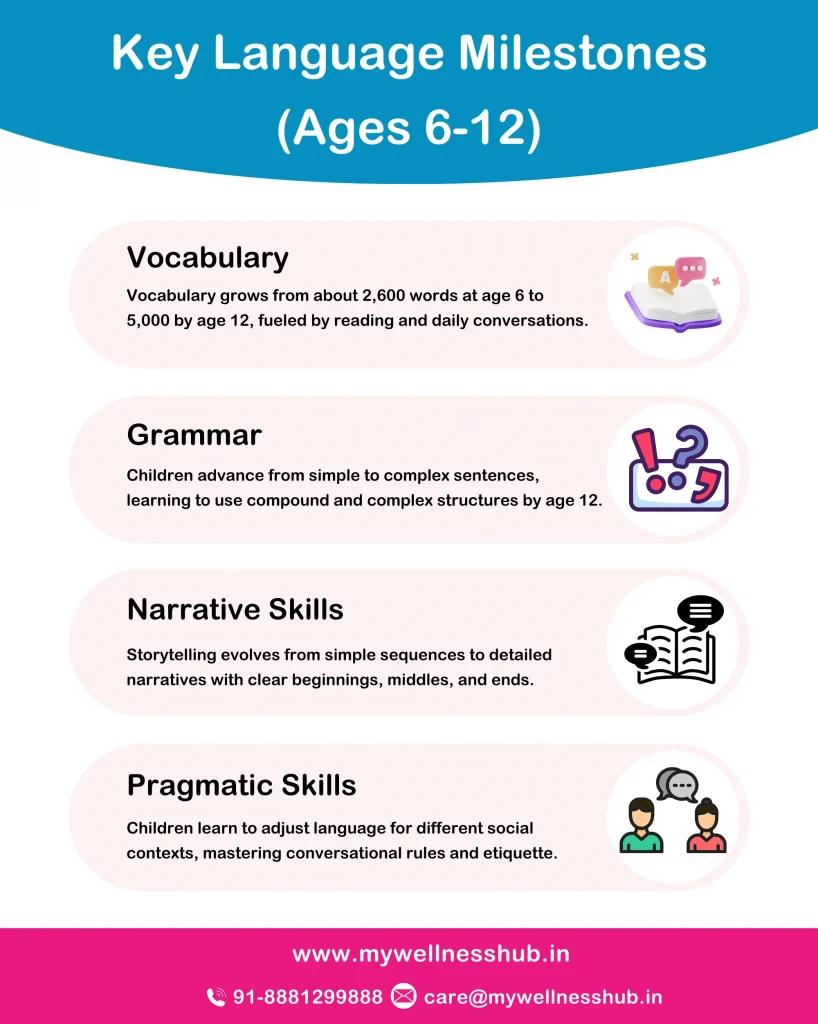
- Expanding Vocabulary: School-aged children rapidly expand their vocabulary. By the age of 12, most children understand about 50,000 words, though they may actively use a smaller number.
- Grammar and Syntax Sophistication: Children’s sentences become longer and more complex. They start using and understanding compound and complex sentences, enhancing their ability to express detailed and nuanced thoughts.
- Pragmatic Language Skills: These involve using language appropriately in different social contexts. Children learn to adjust their language based on the situation, such as speaking differently in a classroom versus on the playground.
- Narrative Skills: By this age, children improve in their ability to tell coherent stories. They can logically sequence events and include elements like the setting, characters, a problem, and its resolution.
These milestones are crucial for cognitive development and literacy skills, setting the stage for academic success and effective social interaction.
Also read: Science Behind Language Development: How Kids Learn to Communicate
Language Milestones by Age Group
| Age | Vocabulary | Grammar Skills | Narrative Ability | Pragmatic Skills |
|---|---|---|---|---|
| 6 | 5,000 words | Simple sentences | Can tell simple stories | Basic conversational turns |
| 7 | 7,000 words | Compound sentences | Beginning, middle, end stories | Appropriate language in family settings |
| 8 | 10,000 words | Complex sentences | More detailed stories | Adjust language for school vs. home |
| 9 | 15,000 words | Advanced grammar | Can create complex narratives | Understands non-literal language |
| 10 | 20,000 words | Use of passive voice | Writes short essays | Can argue and defend viewpoints |
| 11 | 25,000 words | Subjunctive mood | Debates, persuasive narrative | Uses irony and metaphor |
| 12 | 30,000+ words | Full adult grammar | Complex written stories | Fully appropriate social language |
Role of Parents and Educators
The role of parents and educators is paramount in nurturing these developing language skills. Consistent interaction and engagement are the bedrocks on which children build their communication capabilities. Here’s how significant adults in a child’s life can make a difference:
- Consistent Interaction: Regular, meaningful conversations can significantly enhance a child’s language skills. Discussing daily events, books, and shared experiences encourages children to practice new vocabulary and structures in a safe environment.
- Active Engagement: This goes beyond passive listening. Respond to children’s comments with interest, ask follow-up questions that challenge them to think and express themselves more deeply, and introduce new words and concepts gradually.
- Reading Together: Reading is a powerful tool for language development. Encourage reading diverse materials, including fiction and non-fiction, which introduce children to different styles of language and new ideas.
- Feedback and Correction: Provide gentle, constructive feedback on their language use. Correcting errors and modeling appropriate language in a supportive way helps children learn the correct usage without feeling discouraged.
Also Read: How Schools and Educators Shape Kids’ Language Development
Effective Communication Strategies
Encouraging Open Communication
Open communication between children and adults is essential to help young minds feel valued and understood. Here are some practical tips for fostering an environment where children feel comfortable and confident in sharing their thoughts:
- Listen Actively: Show genuine interest in what your child says. Make eye contact, nod, and respond appropriately to encourage them to continue sharing. This shows that their thoughts and feelings are important to you.
- Create a Sharing Routine: Establish a daily routine where you spend time discussing the day’s events. This could be during dinner, before bedtime, or while driving to school. Consistency makes children feel secure and more likely to open up.
- Encourage Expression: Let children know that all feelings are valid and that they can talk about anything, whether it’s happy, sad, or frustrating. Validate their feelings by reflecting back what you hear, such as “It sounds like you had a challenging day.”
Quality of Interactions
The quality of your interactions with your child is just as important as the frequency. Here are ways to ensure your conversations are meaningful and enriching:
- Engage in Meaningful Conversations: Take your discussions beyond everyday occurrences. Talk about books, movies, or interesting things that happened around the world. This not only builds knowledge but also provides a base for more in-depth conversations.
- Use Open-Ended Questions: Instead of yes or no questions, ask questions that require more thought. Examples include:
- “What was the best part of your day and why?”
- “How did you feel when that happened?”
- “What would you do differently if you were in that situation?”
- “Can you tell me more about that?”
Enhancing Vocabulary and Communication Skills
Promoting Advanced Reading Habits
Encouraging children to engage with books that challenge their current reading level can significantly enhance their vocabulary and comprehension skills. Here’s why and how you can implement this strategy:
- Cognitive and Language Development: Advanced books introduce children to new words and complex sentences, improving their language and cognitive abilities. This exposure helps them understand and use more sophisticated language in their own communication.
- Critical Thinking Enhancement: Challenging texts require children to think critically and make inferences, thereby enhancing their analytical skills and ability to grasp complex concepts.
Suggested Reading Activities and Resources:
- Interactive Read-Alouds: Choose a book slightly above your child’s level and read it together. Discuss new vocabulary and ask questions about the plot and characters to enhance understanding.
- Book Clubs for Kids: Join or organize book clubs where children can discuss their readings with peers, which encourages deeper engagement with the text and development of critical thinking.
- Library Visits: Regular visits to the library can spark an interest in a variety of genres and subjects, broadening a child’s reading experience and exposure to advanced vocabulary.
Developing Narrative Skills
Narrative skills are crucial for effective communication. They allow children to organize their thoughts, convey information clearly, and entertain or inform listeners. Here’s how you can help your child develop these skills:
- Storytelling Sessions: Regular storytelling sessions encourage children to structure their thoughts and convey them clearly. Start with a simple prompt and let them narrate a story, gradually increasing the complexity of the stories they tell.
- Picture Stories: Use picture books or a series of images and ask your child to create a story based on what they see. This helps them learn to develop narratives that have a beginning, middle, and an end.
- Role Playing: Engage in role-playing games where your child has to adopt a character’s role. This not only improves their narrative skills but also enhances empathy and emotional understanding.
Recognizing and Addressing Communication Issues
Common Communication Challenges
As children develop their language skills, they may encounter various communication challenges that can affect their ability to express themselves clearly and confidently. Identifying these issues early can make a significant difference in managing them effectively. Here are some typical communication challenges that parents and educators should be aware of:
- Stuttering: This involves frequent repetition of sounds, syllables, or words that disrupt the normal flow of speech. Stuttering can cause self-consciousness and frustration in children.
- Lisps: Characterized by difficulty in articulating sibilant sounds (like “s” and “z”), lisps can affect a child’s clarity of speech.
- Retention Problems: Some children may struggle with understanding or remembering spoken information, which can hinder their learning and communication abilities.
- Language Processing Issues: Difficulties in processing and understanding language can lead to problems with both spoken and written communication.
Practical Activities to Support Language Development at Home
Daily Activities to Enhance Language Skills
Incorporating language development activities into your daily routine can be an effective and effortless way to enhance your child’s communication skills. Here are some practical ideas for using everyday moments as opportunities for language practice:
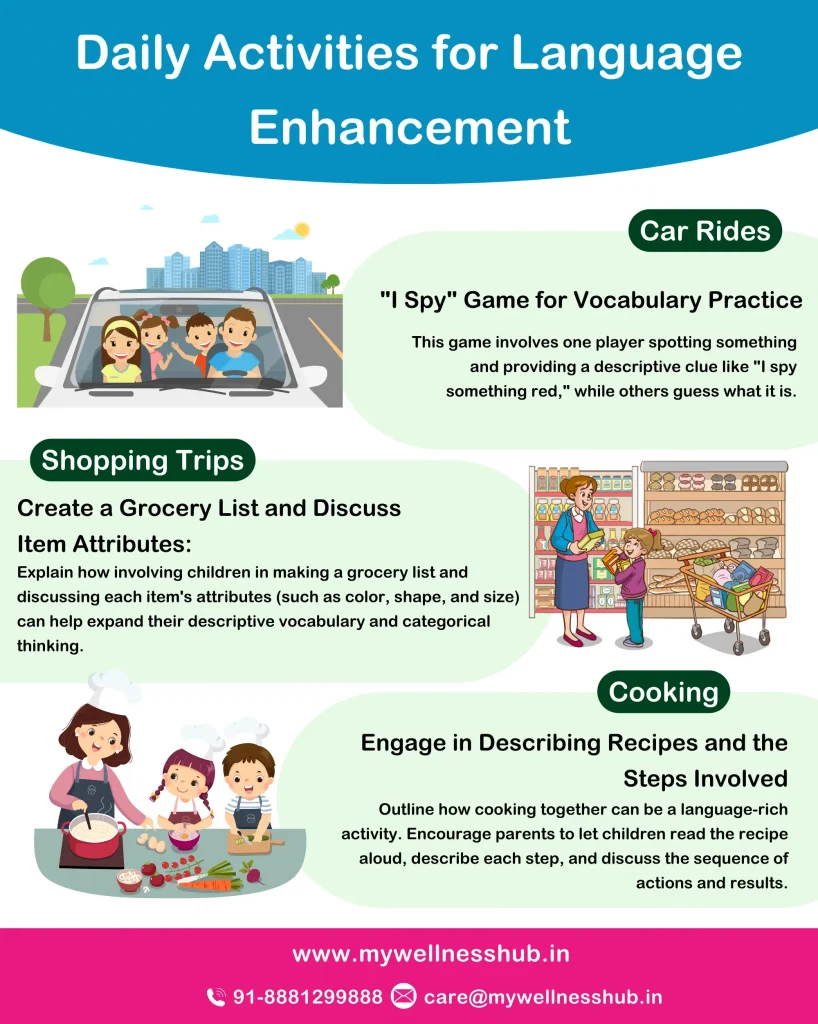
- Car Rides: Turn the daily commute into a learning session. Play games like ‘I Spy,’ where you describe objects outside the car and have your child guess what they are, encouraging the use of descriptive language and expanding vocabulary.
- Shopping Trips: Involve your child in the shopping process by asking them to read the grocery list or find items on the shelves. Discuss the textures, colors, and uses of different products to introduce new words and concepts.
- Cooking Together: Use cooking time to teach new vocabulary related to food and cooking techniques. Have your child follow simple recipes or describe each step as they help you, enhancing both their understanding and use of sequential language.
Engaging in Language-Enhancing Games and Sports
Games and sports offer more than just physical benefits—they are also fantastic avenues for boosting language development. Here’s how participation in various activities can enhance communication skills:
- Board Games and Card Games: Games like Scrabble, Boggle, or even simple card games encourage reading and word recognition. Explain rules, negotiate game plays, and converse about strategies to develop critical thinking and problem-solving language.
- Team Sports: Participating in team sports such as soccer, basketball, or baseball requires children to communicate with teammates and coaches, enhancing their ability to use language in social contexts.
- Drama and Role-Playing: Encourage your child to engage in plays or role-playing games. Acting out different scenarios helps children understand narrative structure, express different emotions through language, and use dialogue effectively.
Technology and Language Development
The Role of Digital Tools
In today’s digital age, technology plays a pivotal role in enhancing language learning and communication skills. From interactive apps to educational software, digital tools can provide a rich, engaging, and accessible platform for children to hone their language abilities. Here’s how technology can aid in language development:
- Interactive Learning: Digital tools often include interactive elements that make learning more engaging for children. Interactive games, quizzes, and virtual reality experiences can help reinforce language concepts and make learning fun.
- Immediate Feedback: Many language learning apps provide instant feedback, which is crucial for helping children understand what they need to improve. This immediate response helps them quickly correct mistakes and learn more effectively.
- Accessibility: Technology provides access to resources that might not be readily available in every home or school, such as foreign language programs or advanced language games, making learning accessible to a wider audience.
- Customization: Digital tools allow for a personalized learning experience. Apps can adapt to a child’s learning pace, focusing on areas that need improvement, which ensures that each child gets support tailored to their needs.
Conclusion
Developing language skills is crucial for children’s success in school and life. Effective communication helps them express themselves, excel academically, and interact socially. At Wellness Hub, we’re committed to supporting this growth with easy-to-use resources and engaging activities. By working together—parents, teachers, and children—we can enhance these essential skills every day. Keep the conversation going; every moment is an opportunity to learn and grow. For more tips and tools, visit our Language Development Resources. Let’s help our children thrive with strong communication skills!
Frequently Asked Questions:
1. What are the key language milestones for school-aged children?
Children aged 6 to 12 should be expanding their vocabulary, mastering complex grammar, and improving narrative skills. Expect them to understand and use more advanced language structures, participate in detailed conversations, and effectively use language in various social situations.
2. How can I help my child develop better communication skills?
Engage your child in daily conversations, read together regularly, and encourage them to express their thoughts and feelings. Use car rides, meals, and playtime as opportunities to practice new vocabulary and discuss different topics.
3. Why is reading important for language development in children?
Reading exposes children to new vocabulary, ideas, and ways of using language that they might not encounter in everyday speech. It helps them understand complex language structures and enhances their cognitive development related to language use.
4. What signs indicate a child might have language development issues?
Look for difficulties in following directions, limited vocabulary, challenges in forming coherent sentences, or reluctance to engage in conversations. Problems like stuttering or mispronouncing words frequently are also key indicators.
5. When should I seek help for my child’s language issues?
If you notice persistent language difficulties that affect your child’s academic performance or social interactions, or if they show frustration with communication, consult a speech-language pathologist. Early intervention is crucial for effective treatment.
6. How can technology help with language development?
Utilize apps and software designed for language learning, which can offer interactive experiences and personalized feedback. Technology can make learning engaging through games and virtual interactions that reinforce language skills.
7. What role do parents play in their child’s language development?
Parents are vital in encouraging language growth through consistent engagement and support. Regularly talking with your child, reading together, and playing language-rich games significantly influence their linguistic abilities.
8. How can I make learning language fun for my child?
Incorporate language learning into fun activities like games, storytelling, and arts and crafts. Use educational apps that turn language practice into interactive play, and participate in group activities like playdates where your child can practice communicating with others.
9. What should I discuss with my child’s teacher about language development?
Regularly communicate with your child’s teacher about their language progress and any concerns you or the teacher may have. Discuss strategies used in the classroom and how you can support these at home to provide a consistent learning experience.
10. How does Wellness Hub support language development in children?
Wellness Hub offers a variety of resources tailored to enhance language development, from articles and tips for parents to workshops and direct consultations with experts. These resources aim to empower parents and educators with the tools needed to support effective language learning.
About the Author:
Rajini Darugupally
M.Sc., Speech-Language Pathologist (9+ years of experience)
Rajini is a passionate and dedicated Speech-Language Pathologist with over 9+ years of experience, specializing in both developmental speech and language disorders in children and rehabilitation in adults. Currently, at Wellness Hub, she thrives in a team environment that values innovation, compassion, and achieving results for their clients.
Book your Free Consultation Today
Parent/Caregiver Info:
Client’s Details:
* Error Message
